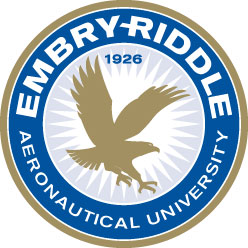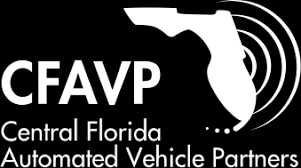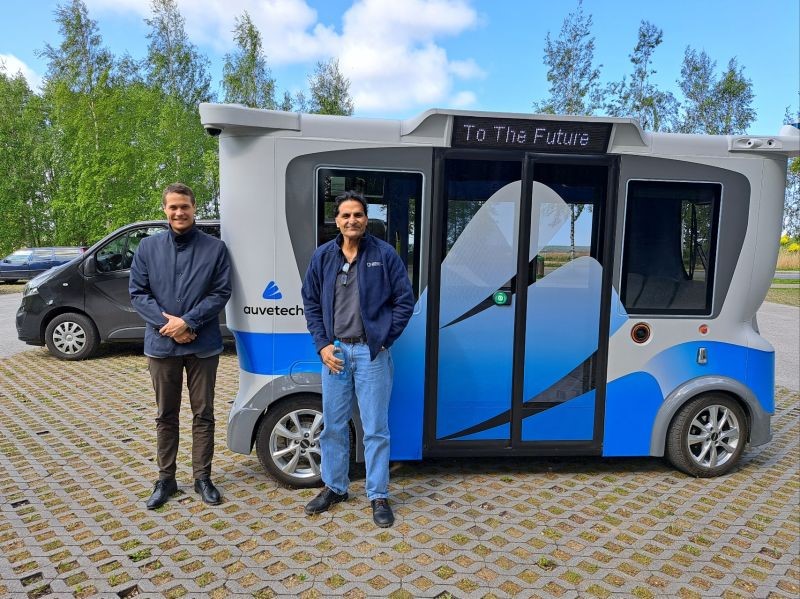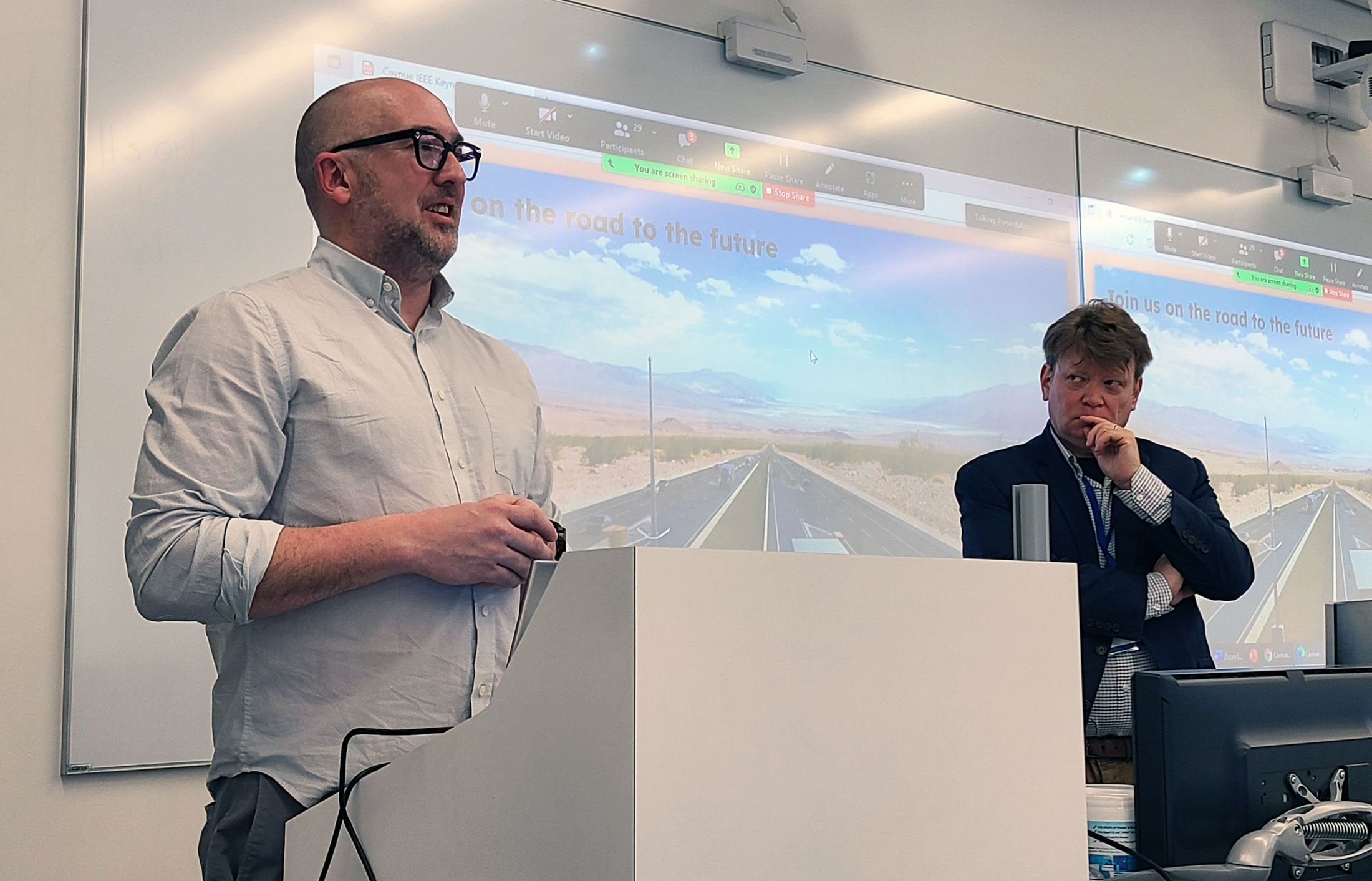Advanced Mobility Institute
Driving the Future of Autonomous & Connected Vehicle Innovation
The Advanced Mobility Institute (AMI) at Florida Poly is a cutting-edge research center fueling the next era of mobility—from smart cities to self-driving vehicles. As one of the nation’s largest university-based programs focused on autonomous vehicle (AV) verification and validation, AMI is where engineers, computer scientists, and visionaries shape the future of how we move.
Whether you’re a student with a passion for AI-driven systems, a faculty member exploring breakthrough research, or an industry partner seeking collaboration—AMI is where momentum meets mission.
Innovation, Science, and Technology Building
Room 20297
4549 Polytechnic Circle
Lakeland, FL 33805
Why AMI?
Elite Research Opportunities
Work alongside world-class faculty and industry leaders on projects in AV simulation, connected vehicle networks, machine learning, human-machine interaction, and more.
Real-World Impact
Our research directly supports national transportation safety goals and is helping to define AV standards used across the globe.
Tech That Moves the World
Our research directly supports national transportation safety goals and is helping to define AV standards used across the globe.
High-Impact Partnerships
AMI collaborates with major organizations including the U.S. Department of Transportation, NASA, MITRE, Florida Department of Transportation, and private tech companies to accelerate innovation.
Explore Our Research Areas
At the Advanced Mobility Institute, we’re advancing the science of autonomy by focusing on what works in the real world—technology that is reliable, secure, and ready for deployment. Our multidisciplinary teams investigate how connected and autonomous vehicles (CAV) perform under pressure, respond to threats, and operate in complex environments.
Florida Poly’s multidisciplinary teams investigate how autonomous and connected vehicles perform under pressure, respond to threats, and operate in complex environments. Here’s how we’re driving the science of safety forward:
Verification & Validation of Connected & Autonomous Vehicles (CAV)
- Developing cutting-edge simulation frameworks and real-world protocols to ensure autonomous systems behave safely, predictably, and ethically in traffic environments.
- Crash-based scenario modeling helps us understand how CAVs react to edge cases and collision scenarios that can’t be replicated in typical field testing.
Cybersecurity & Resiliency in Contested Environments
- Pioneering research on testing CAVs under cyberattacks—from GPS spoofing to network manipulation—to improve real-time response and recovery.
- Investigating the resilience of AV RADAR systems and communication modules in adversarial and high-risk settings.
Sensor Ecosystem & Environmental Effects
- Studying how weather conditions (rain, fog, snow, glare) impact perception systems such as LiDAR, camera, and mmWave RADAR.
- Examining electromagnetic interference (EMI) and its influence on AV sensor accuracy, particularly millimeter-wave RADAR performance.
Software, Hardware & Vehicle-in-the-Loop Testing
- Integrating digital twin technology and hardware-in-the-loop (HIL) platforms to simulate and test AV behavior in real-time conditions.
- Evaluating vehicle-in-the-loop (VIL) models to bridge the gap between simulation and on-road performance.
Communication, Connectivity, & Topology
- Testing the resiliency and robustness of V2X networks, including how CAVs handle interruptions, latency, and handoffs across real-world network conditions.
- Designing and analyzing roadway topology and infrastructure to optimize communication and sensor placement for CAVs in urban and rural environments.
Autonomous Vehicle Design
- Engineering next-gen AV platforms from the ground up—merging AI, robotics, mechanical design, and control systems to create vehicles that can safely and smartly navigate diverse terrains and scenarios.
Meet the Minds Behind the Mission
Our interdisciplinary team includes some of the nation’s top minds in engineering, data science, and autonomous systems—each bringing passion and precision to the work that defines the future.
Expertise includes control theory, modeling and validation of complex systems, and sensor and data fusion/target-tracking. Research includes developing and validating new methodologies in Intelligent Transportation Systems (ITS), autonomous vehicles, and connected vehicles (V2V, V2I, V2X), and analyzing and testing existing methodologies and techniques.
Expertise includes algebraic number theory, machine learning, and autonomous vehicle technology. Research includes creating mathematical models for verification and validation of autonomous systems, for stability testing and scenario generation.
Expertise includes hardware acceleration, FGPA applications, and embedded systems. Research includes mmWave radars, sensor fusion, and FGPA-based hardware acceleration.
Proud Partners in Innovation
AMI’s powerful partnerships amplify our impact. Through collaborations with transportation agencies, defense contractors, automotive tech leaders, and academic institutions, we’re helping build safer, smarter, more sustainable transportation networks.

Florida Poly and Embry-Riddle are working together to accelerate the development of airborne autonomous technologies, advancing innovations in unmanned aerial systems and intelligent flight operations.

AMI collaborates with a network of regional stakeholders along the I-4 Corridor to explore, test, and implement connected and autonomous vehicle (CAV) technologies that can transform Central Florida’s transportation landscape.

In partnership with JTA, AMI supports the advancement of autonomous vehicle technology in public transit, contributing research and expertise to shape the future of smart, connected mobility in urban settings.

Through this international collaboration, Florida Poly and TalTech are jointly developing and testing autonomous vehicle systems tailored for deployment in controlled environments such as university campuses and city centers.
Shaping Tomorrow, Today
At Florida Poly’s Advanced Mobility Institute, we believe innovation should move us—literally. As a student, researcher, or supporter, you’ll be part of something bigger: a bold vision for a world where technology and transportation evolve together to create safer roads, smarter cities, and a more connected society.
News & Impact
The FIPR Institute regularly contributes to advancements across the phosphate industry and environmental sciences. Here are a few notable highlights:

Florida Poly and TalTech advance AV research through successful partnership
Four years after announcing an innovative partnership on autonomous vehicle (AV) technology, Florida Polytechnic University and Tallin University of Technology (TalTech) in Estonia have taken their cutting-edge research to the next level. The collaboration has produced significant results, enabling the exchange of knowledge, resources, and expertise between the two institutions and beyond. The partnership integrates Florida Poly’s know-how in AV

Florida Poly team on way to fully autonomous golf cart
A project to turn a standard golf cart into an autonomous vehicle has made a huge leap forward at Florida Polytechnic University. The students and faculty have successfully transformed the golf cart into a drive-by-wire vehicle – one that can be controlled by remote control. The Florida Poly community can often see the solar-powered golf cart zipping around campus with

Autonomous vehicles inspire leaders at international conference hosted by Florida Poly
Global leaders in connected and autonomous vehicle (CAV) research and industry gathered at Florida Polytechnic University to discuss developments in the technology and the future of self-driving cars during the annual Institute of Electrical and Electronics Engineers (IEEE) International Conference on Connected Vehicles. The hybrid conference was virtual on March 7 and on-site at Florida Poly with satellite locations in


